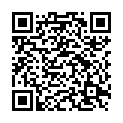|
|
|
| Module code: PIBWN40 |
|
2SU (2 hours per week) |
|
2 |
| Semester: 5 |
| Mandatory course: no |
Language of instruction:
French |
Assessment:
Written examination (final exam)
[updated 26.02.2018]
|
E2422 (P200-0011) Electrical Engineering and Information Technology, Bachelor, ASPO 01.10.2018
, optional course, general subject
KI659 Computer Science and Communication Systems, Bachelor, ASPO 01.10.2014
, semester 5, optional course, non-technical
KIB-FFA1 (P200-0011) Computer Science and Communication Systems, Bachelor, ASPO 01.10.2021
, semester 5, optional course, non-technical
KIB-FFA1 (P200-0011) Computer Science and Communication Systems, Bachelor, ASPO 01.10.2022
, semester 5, optional course, non-technical
MAB.4.2.1.6 (P200-0011) Mechanical and Process Engineering, Bachelor, ASPO 01.10.2013
, semester 5, optional course
MST.FA1 (P200-0011) Mechatronics and Sensor Technology, Bachelor, ASPO 01.10.2012
, semester 5, optional course, non-technical
MST.FA1 (P200-0011) Mechatronics and Sensor Technology, Bachelor, ASPO 01.10.2019
, semester 5, optional course, non-technical
MST.FA1 (P200-0011) Mechatronics and Sensor Technology, Bachelor, ASPO 01.10.2020
, semester 5, optional course, non-technical
PIBWN40 Applied Informatics, Bachelor, ASPO 01.10.2011
, semester 5, optional course, not informatics specific
PIB-FFA1 (P200-0011) Applied Informatics, Bachelor, ASPO 01.10.2022
, semester 5, optional course, not informatics specific
MST.FA1 (P200-0011) Mechatronics and Sensor Technology, Bachelor, ASPO 01.10.2011
, semester 5, optional course, non-technical
|
30 class hours (= 22.5 clock hours) over a 15-week period.
The total student study time is 60 hours (equivalent to 2 ECTS credits).
There are therefore 37.5 hours available for class preparation and follow-up work and exam preparation.
|
Recommended prerequisites (modules):
None.
|
Recommended as prerequisite for:
PIBWN41 French for Beginners II
[updated 02.11.2007]
|
Module coordinator:
Prof. Dr. Christine Sick |
Lecturer:
Prof. Dr. Christine Sick
[updated 08.07.2007]
|
Learning outcomes:
The course French for Beginners I is aimed towards learners with little or no previous knowledge of the French language. The courses French for Beginners I and II are based on each other. In the course of the two modules, students will first reach proficiency level A1 and then advance to level A2 of the European Framework of Reference for Languages.
The goal of the course is to provide students with basic knowledge of the French language, which will enable them to communicate in general and professional situations as quickly as possible, both orally and in writing. To do so, all four skills (speaking, listening comprehension, reading and writing) will be trained equally. Content development will be supported by the repetition of the relevant grammatical structures.
The course takes a communicative and pragmatic approach that particularly promotes communicative competence in job-relevant situations through the use of role playing and situational dialogues. This also includes intercultural aspects that raise the students´ awareness of cultural differences and enable them to assert themselves in specific situations.
[updated 26.02.2018]
|
Module content:
Establishing contact
- Greetings
- Introducing oneself and others
- Asking how someone is feeling
- Giving information about yourself and requesting information about others
- Saying thank you, apologizing and saying goodbye
Job profiles and the workplace
- Company structure and workflow
- Describing jobs and activities
- Showing and describing products
Telephone communication
- Common verbal expressions
- Asking for and giving information
In addition, we will concentrate on basic grammatical structures. Students should work on and expand their basic vocabulary independently.
[updated 26.02.2018]
|
Recommended or required reading:
The course is based on the following textbook and will be supplemented by suitable material from other textbooks:
Jambon, Krystelle: Voyages 1 - Französisch für Erwachsene, Klett, Stuttgart: 2006.
We also recommend purchasing the following grammar exercise book: Eurocentres Paris (group of authors): Exercices de grammaire en contexte - niveau débutant, Hachette Livre, Paris: 2000, 144 p.
Students will receive a list of recommended teaching and learning materials. We recommend the following multimedia learning program for independent learning: Oberstufe Französisch. 6000 Vokabeln zu allen Themen. Vokabellernprogramm auf CD-ROM mit Sprachausgabe. Klett-Verlag, Stuttgart
[updated 26.02.2018]
|
Module offered in:
WS 2024/25,
WS 2023/24,
WS 2022/23,
WS 2021/22,
WS 2020/21,
...
|


